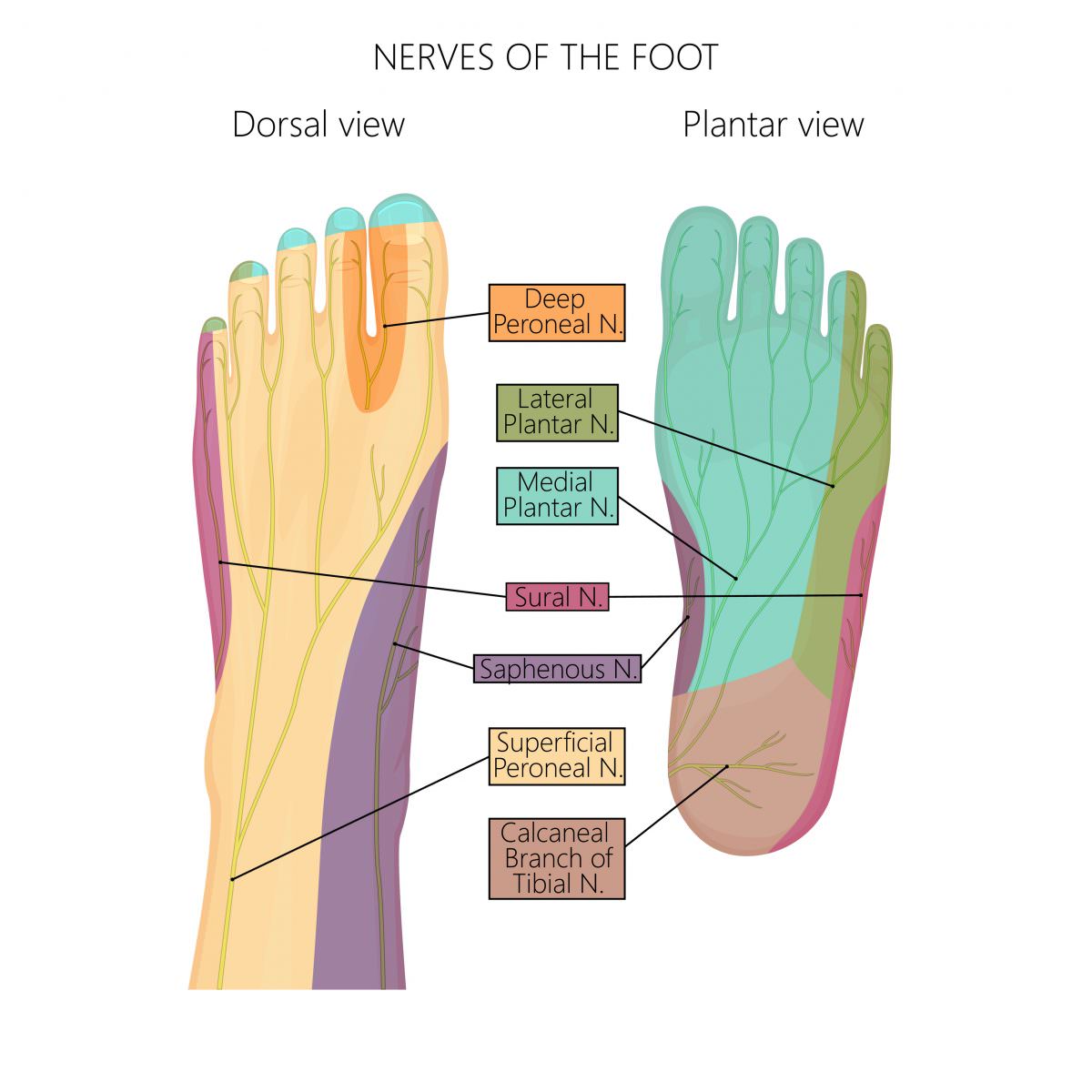 Neuropathy
Neuropathy
Peripheral Neuropathy is damage of the peripheral nerves. Your peripheral nerves are the nerves that travel to your arms and legs. When the nerves are damaged, they don’t function properly. People with peripheral neuropathy have decreased or abnormal sensation in their toes and fingers. Sometimes, they develop problems moving these parts of the body as well.
Causes
In the United States, the most common cause of peripheral neuropathy is diabetes. According to the American Diabetes Association, 60 to 70 percent of people with diabetes will develop neuropathy within their lifetime.
Other causes include:
- Certain medications, including some chemotherapy drugs.
- Heredity. Some people have a family history of peripheral neuropathy.
- Advanced age. Peripheral neuropathy is more common as people age.
- Arthritis. Certain type of arthritis, especially involving the back, can cause peripheral neuropathy.
- Alcoholism. According to the US National Library of Medicine, up to half of all long-term heavy alcohol users develop peripheral neuropathy.
- Neurological disorders. Certain neurological disorders, including spina bifida and fibromyalgia, are associated with peripheral neuropathy.
- Injury. Acute injury to the peripheral nerves may also cause peripheral neuropathy.
,
Symptoms
The most common symptoms include burning, numbness, tingling, or shooting or stabbing pain in the toes and/or fingertips. Any change in sensation in the fingers or toes may be a symptom of peripheral neuropathy. Be sure to report any abnormal sensations to your doctor. Those sensations may be the first sign of another problem, such as diabetes.
When to Visit a Podiatrist
Everyone with symptoms of peripheral neuropathy of the feet should see a podiatrist. Podiatrists are doctors who are specially trained to preserve the health of the feet.
Diagnosis and Treatment
A podiatrist, family physician, internist, or physician who specializes in diabetes can diagnose peripheral neuropathy. The diagnosis is made on the basis of a physical exam, health history, and your reporting of symptoms. The doctor may order a blood test to check your blood sugar level because high blood sugar levels and diabetes are an important cause of peripheral neuropathy.
There is no known cure. The goal of treatments are to slow the progression of the disease, to maintain foot health, and to decrease pain (if present) and improve the quality of life.
The podiatrist may prescribe oral medication to help with symptoms. He or she will also perform a thorough foot check to look for any injuries or infections and will teach you how to do the same. Your podiatrist will also show you how to take care of your feet at home. People who have it should have their feet examined by a podiatrist at least once per year.
If you also have diabetes, the podiatrist will work closely with you and other health-care professionals. Controlling the patient’s blood sugar levels with diet, exercise, and medication (if needed) can slow the progression of peripheral neuropathy and maintain foot health.
Prevention
The best thing you can do to prevent peripheral neuropathy is to keep your blood sugar levels under control. It is common in people with diabetes, but the degree of neuropathy generally corresponds to the degree of blood sugar control. Someone whose blood sugar is kept under tight control will usually have much better sensation in their fingers and toes than someone with poorly controlled diabetes. Cited from www.apma.org
Call Our Marietta, Georgia Office Today at 404-806-3731 or Book your appointment online now!

![podiatryGroup-Logo[1] Logo](https://www.podiatrygroupofgeorgia.com/wp-content/uploads/2020/07/podiatryGroup-Logo1.png)